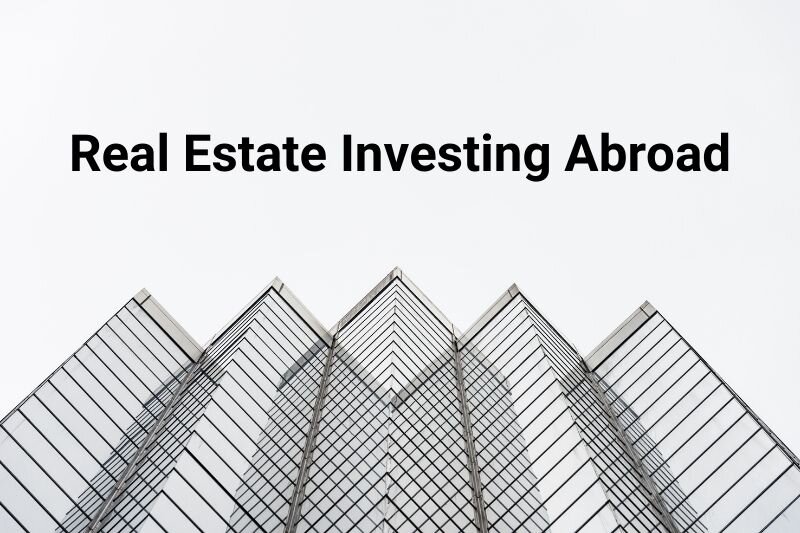Watch the video: https://youtu.be/1mHwdKuVy3I
In my recent interview with Andrew Henderson from Nomad Capitalist, he mentioned that he has 6 properties in 6 countries. For him, frontier markets have much more potential than matured markets such as western Europe. This is a very interesting point. In Phnom Penh, Cambodia, the real land price has been rising since 2010 with an average of 6.6% growth per year till 2018, almost tripled in 9 years’ time. In Manila, the Philippines, the real estate property price, both land and condos have been growing since 2004/2005.
The Philippines experienced a house price boom from 2010 to 2018, with Makati CBD prices rising by almost 132%. In Q3 2019 the year-on-year price surged by 29.1% for condominium units, 24.8% for duplex houses, 2.4% for single houses, and 6% for Townhouses. Not only in Phillippines, but many frontier markets have also shown promising growth in real estate properties.
However, despite the lucrative return, it does not come without risks. With the impact of the US-China trade war in 2019, housing prices have dropped sharply in 2019. This is one of the risks associated with real estate investment abroad.
Here I summarized some key points we talked about in the live session.
1. Drivers for real estate growth
When you are looking into a market to invest in, you should look at the overall economic outlook, demographic trend, and local laws and regulations. In the area where there is a rising population, growing business environment, rising income level, it is an indication that this area is growing. There will be more jobs in the area, which means more demand for housing. You need to look at the future trend of this area, and estimate the potential growth instead of looking at the current situation. It could be a matured area and further growth is limited, then is it still a good investment?
2. Risks associated with real estate investment
When investing abroad, especially in frontier and emerging markets, political instability is a factor you should not ignore. In the Philippines, the housing market has been rising, but a trade war could largely impact the rising housing market. Or it could be the recent Myanmar coup event, this could affect how foreign investors and businesses decide if they want to operate in the country.
If the local government is highly indebted, it could lead to higher interest payments, tax spikes, and exposure to the fiscal crisis. It is bad for the economy, so is your real estate investment.
Foreign exchange risks can eat up your return. When you purchase with your local currency and sell in foreign currency, you are exchanging money twice. Meanwhile, the foreign exchange rate can fluctuate a lot and that can potentially eat up your return. For example, in 2020 March, 1 Malaysian Ringgit = SGD 0.43. In 2021 Feb, 1 Malaysian Ringgit = SGD 0.33. If you buy using SGD and sell in Malaysia Ringgit, you will lose 30% because Malaysian Ringgit has depreciated by 30% in the last 10 years.
Restriction of money movement can prevent you from getting your money out of the country. We have seen before in Taiwan, China, and other markets that local governments want to prevent money from flowing overseas, so they limit the amount of money to be transferred abroad to set many regulations. Residents and foreigners can only transfer up to $5000 foreign currency abroad. It is far from a sale of a property price. But it is not impossible, many ways can solve this problem if you work with your bank, ideally an international bank.
3. Tips for overseas real estate investment
Despite the risks, there are many reasons you should invest abroad. It can diversify your investment, help you to gain more mobility such as Portugal golden visa or other immigration through investment programs. It can also provide you amazing returns if you do it well.
When you invest abroad, you should consult experts to understand what is your tax implications. Understand if there are some limitations for foreigners to buy and sell properties. Maybe there is a quota or other limits that could constrain your liquidity. In Singapore, foreigners have to pay a 20% stamp duty when they buy a condo, except the countries that have a treaty with Singapore. 20% on top of your purchase price is a huge sum given that many condo prices starting at SGD$1million.
Besides financials and regulations, you should be aware of cultural differences, never invest without understanding the local culture and even better the language, understand the mindset of the people to understand the potential: minimize culture shock
Most importantly, when you are not living in that country, you need a team of trusted people on the ground to help you manage the property. If you rent it out or make it AirBnB, you need people to help you arrange the visits, leasing contracts, repairs, and cleaning. When you are not there in person, you can not control everything. So in this respect, finding a reliable agent or a management company is crucial.
Real estate investing abroad can be very profitable and interesting if you do it well. If you are starting out, maybe investing a moderate amount. There are so many factors that can make your investment succeed or fail. Starting with some research work and connect with people who have invested in the countries or from there, understand what is the growth potential, investment restriction, tax implications, and so on. When you get better at this, maybe you can replicate your model to other markets. Investing abroad is never simple, therefore finding a trusted advisor or professional service is crucial.
Share this post





Latest Blog Posts
Money Mindset
Our cost of living in Switzerland for a family of three – 2024 Review
Read MoreMoney Mindset
January Expense for a Family of 2 in Switzerland
Read MoreMoney Mindset
How To Calculate Your Net Worth Correctly for Early Retirement
Read More